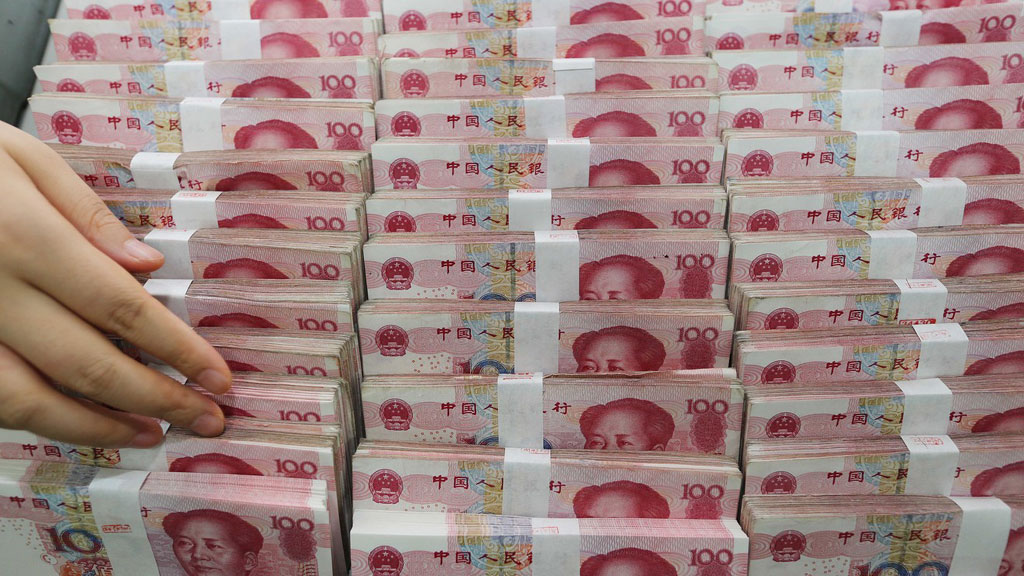China's yuan firms as cbank signals less tolerance for depreciation

SHANGHAI: China's onshore yuan surged to its strongest level in more than four months against the US dollar on Wednesday on views that the central bank is now less inclined to allow the currency to depreciate markedly against the dollar.
Those suspicions were reinforced on Friday after the China Foreign Exchange Trade System (CFETS) trading platform, which is overseen by the central bank, said it was introducing a new factor in its calculations for the yuan's daily reference rate.
CFETS did not specify what the new "X" factor was, apart from describing it as a "countercyclical factor" apparently intended to curb volatility and speculation.
Market players had already begun to suspect a possible change in the way the PBOC's was calculating the daily midpoint after a series of fixings in May did not meet the predictions of their computer models.
The latest move would be the second time this year that China has changed how it calculates the yuan's guidance rate in an effort to stabilise the currency and reduce price swings.
ING believes the main problem for Chinese authorities was that when the dollar index dropped, the yuan also weakened versus the dollar.
"We infer that the authorities tired of having to intervene in the foreign exchange market to counter what they consider irrational yuan depreciation pressure," ING's Asia economist Tim Condon said in a note.
"They identify the problem as a bug in the 'closing price plus basket' formula that assigns too much weight to the closing price. The modification fixes the bug."
Stephen Innes, senior trader at OANDA said the latest policy shift could be "another hit to the PBOC credibility who continued to struggle to get their house in order".
Chinese authorities were sharply criticized internationally in 2015 and early 2016 for not being transparent enough about policy shifts, particularly involving Beijing's foreign exchange regime.
On Wednesday, the People's Bank of China set a firmer midpoint rate at 6.8633 per dollar, compared with the previous fixing at 6.8698.
In the spot market, the yuan opened at 6.8400 per dollar and hit a high of 6.8354 per dollar in early trade.
It retreated to 6.8379 by midday, still 146 pips firmer than the previous late session close and 0.47 percent firmer than the midpoint.
For the month, the yuan was set to strengthen nearly 0.9 percent to the greenback, posting its best month since January and bringing its year to date gain to around 1.5 percent.
Market players said there were some dollar purchases in the onshore foreign exchange market in morning trade on Wednesday, but a much firmer offshore yuan has not left much room for the onshore counterpart from sinking amid elevated yuan borrowing costs in Hong Kong.
Hong Kong's overnight yuan borrowing rate jumped to the highest point in nearly five months.
The CNH Hong Kong Interbank Offered Rate benchmark (CNH Hibor), set by the city's Treasury Markets Association (TMA), rose to 21.07933 percent for overnight contracts, the highest level since Jan.6. The previous fix was at 5.35283 percent.
The spurt in CNH funding costs discouraged short yuan traders as their borrowing costs rose dramatically.
State banks were also believed to have intervened offshore last week to sell dollars and prop up the yuan.
The offshore yuan was trading 0.5 percent firmer than the onshore spot at 6.8067 per dollar at midday.
Currency markets took positive May manufacturing and service sector data in stride.
Activity in China's manufacturing sector grew at a steady pace this month compared with April, an official survey showed on Wednesday, bucking expectations of some softening after a strong first quarter.
Separately, the index for the yuan's value based on a trade-weighed basket fell to a fresh record low since the data was available in late 2015.
The index fell to 92.26 last Friday, 0.25 percent lower than a week earlier, according to official data from the China Foreign Exchange Trade System (CFETS).
























Comments
Comments are closed.